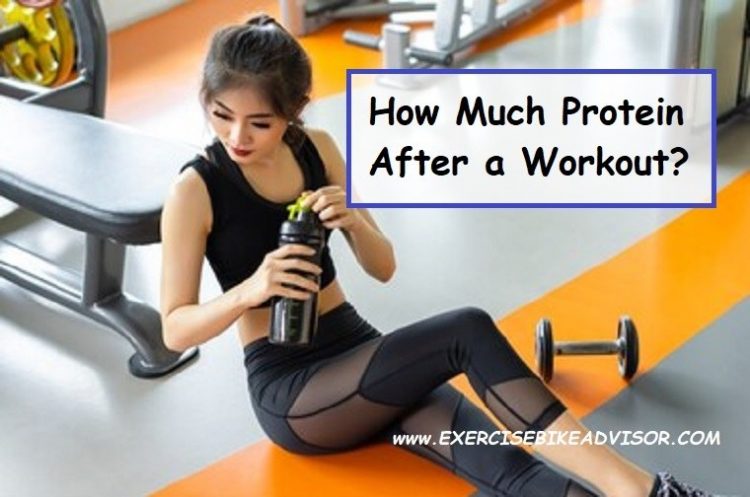The mystery that lies behind post-workout nutrition is less about what type of proteins to eat, and more on the amount to consume. People have been continuously looking for answers to many of their unsolved post-workout inquiries. How much protein after a workout should I take? Is a protein shake essential immediately after your training session?
What’s the basis of consuming more protein after working out, does it involve bigger muscles or a higher fat-burning rate? Individuals have drowned their curiosity on the internet and are searching for the perfect answer to these questions.
However, the information found on the web can, at times, be overwhelming. Instead of guiding you towards the best answer, it can drag you further into confusion than you initially were. But in this article, we will enlighten you on all that you should know how much protein to consume after a workout.
So, how much protein should I consume after workout?
NOTE: First of all, you should choose whey as your after workout protein source. Whey is a fast-digesting protein found in milk. The reason is, whey contains 10% of an amino acid that stimulates protein synthesis called leucine, unlike 5% in other animal-based proteins. But you are free to choose any of the protein sources you like.
So, how much protein after a workout depends on some factors, but there is a standardized amount to consume. The recommended amount per pound of body weight (0.3–0.5 grams/kg) is 0.14-0.23 grams of protein soon after a workout. Therefore, ingesting 20-40 grams of protein after workout maximizes body’s recovery process. This is according to a study done by the National Institute of Health (Here).
You should also note that there are a few factors that may affect your protein requirements, and these include:
- Your carbohydrate intake
- Hormonal composition
- Training volume
- The quality of protein
- Intake of calories
- Gut health
What are the benefits of post-workout protein?
Before answering this question, let’s understand this first. Are you aware of the essential role played by proteins after a workout in the first place?
During your intense training sessions, your muscles get partially depleted of glycogen. Furthermore, some of the proteins in those muscles get broken down and damaged. After a workout, your body attempts to rebuild the glycogen stores and repair worn-out muscles.
Consuming a sufficient amount of proteins after working out provides your body with the much-needed amino acids. These compounds are necessary for restoring the worn-out muscles and rebuilding the glycogen stores.
Other protein’s benefits after workouts include:
- Better Health. Protein shakes help your body trigger an immune response to infections and reduces muscle soreness.
- Muscle Growth. Whey is proven to stimulate muscle size gains.
- Compact Nutrition. One of the best things about protein shake is that it compact nutrition. Taking it in a ratio of 4:1 (Proteins: Carbs) helps with quick recovery and gain more energy.
So, as much as you should be proud of yourself for completing the day’s training, the work doesn’t end there. It would be best if you still put in a lot of effort and thought into your post-workout nutrition. And this is where proteins come into play. Failure to do so will render your hard work and sweat irrelevant.
Proteins shake’s misguiding myths
Here are a few misguiding myths that you must look out regarding protein shake/powder.
» How much protein after workout solely depends on various factors such as body type and gender:
Such a theory is usually rampant on social media platforms like YouTube or Instagram. It is where body-builders would claim that gender and your body type affects your post-workout nutrition habits for consuming proteins. However, scientific evidence proves that the proteins needed after a workout depends on the type and frequency of the exercise. The following are a few tips to look into for your post-workout nutrition routine:
- Body type and gender don’t affect the number of proteins to consume.
- Try to synchronize your workout routine with your protein consumption to know the right amounts for every session.
- Seek the help of a professional expert and not the opinions of your gym mates.
» It is best to consume proteins immediately after working out:
It’s a fact that during training sessions, your glycogen stores deplete while some of the muscles break down. For this reason, one would need enough proteins for the repairs done within the body. However, you should always be careful not to focus a lot of your post-workout nutrition options on proteins alone.
Exercises drain you of energy, and this requires you to focus on replenishing the levels of carbohydrates in your body. As such, taking an adequate amount of proteins tends to accelerate the uptake of these carbohydrates.
Therefore, there isn’t an official time for consuming the most protein. It’s, therefore, better to spread your intake throughout the day for the repair and maintenance of the muscle tissues. Note that the body doesn’t store proteins as it does fat and carbohydrates.
You are only capable of using the protein from the food you have inside your body. One can consume protein hours after workouts, and it would still help recover the bit that depletes during training.
» You need large amounts of proteins after a workout, for recovery:
At times you may be told that, for a quicker post-workout recovery, you need to take large amounts of proteins. While it’s true that proteins are helpful for recovery, but taking large amounts of it won’t help the situation/process.
According to scientists, the recommended daily allowance for proteins stands at 0.8g/kg. That serves as the right amount of proteins for the average human being who doesn’t focus on exercises much. However, for the active athletes on a tight burnout schedule, the advisable rate is 1.2 – 1.7g/kg of proteins.
Therefore, consuming proteins more than 2g/kg won’t do you any good if you’re looking to recover fast. One should be able to regulate themselves on their consumption for proteins and stick to the recommended boundary.
Takeaway
Above all, you should know that as much as you may train hard and take lots of protein, it won’t matter if you’re unable to meet all the other nutritional needs. It is essential to consider a balanced diet, even when working out, for the most effective results.




